The politics of surprise: Bill ‘Never Ever Give Up’ Shorten does so
On Bill Shorten’s fridge at home, a magnet on the door declares ‘never, ever give up.’ On Thursday he did, at least on his ambition to be PM, and is moving on to a life after politics.
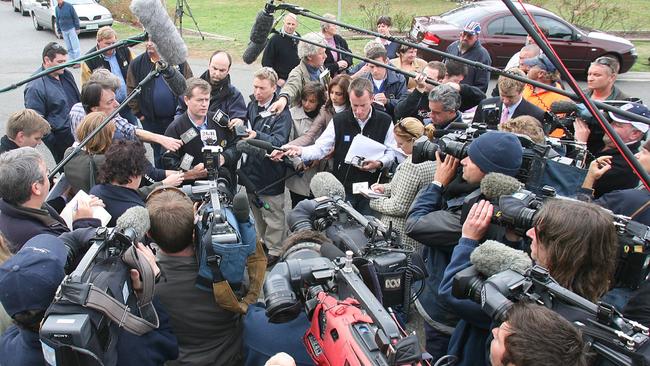
Bill Shorten had a problem. He needed to fly to Beaconsfield in Tasmania urgently to be on scene at the tragic mine collapse that had trapped two men and killed another.
Refusing to be defeated by standard commercial airline scheduling, the 39-year-old grabbed his mobile phone and called someone he knew could help.
Australia’s billionaire cardboard king Richard Pratt answered, and didn’t hesitate in offering Shorten, then the state secretary of the Victorian division of the Australian Workers Union, his private jet.
The night-time flight came after the two missing miners — Brant Webb and Todd Russell — were unexpectedly found alive, creating a wild sense of optimism in the northern Tasmanian town, that was devastated by the confirmed death of their colleague Larry Knight.
On Pratt’s Gulfstream jet were various union officials and two Melbourne journalists. One of them was The Australian’s associate editor John Ferguson.
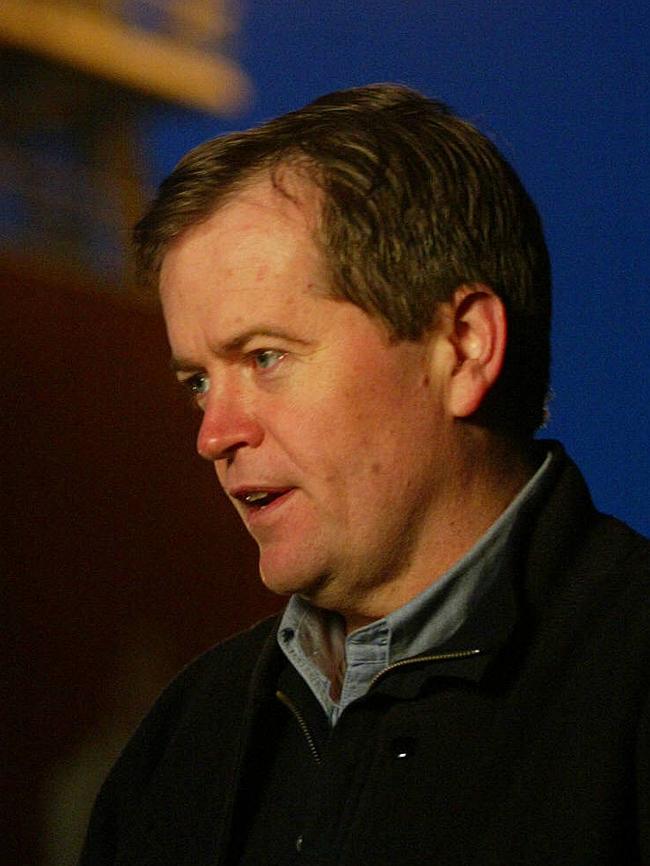
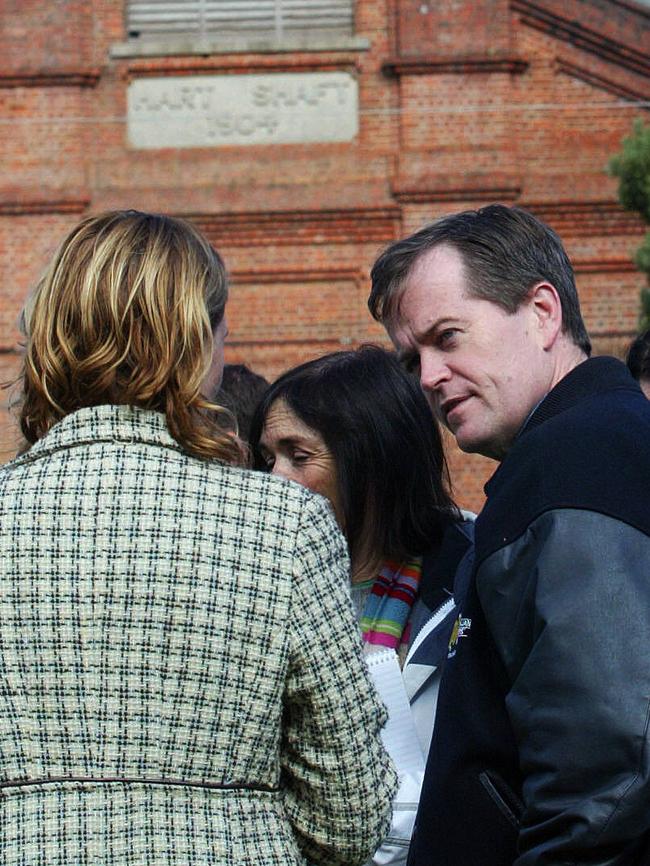
“It was a surreal flight,” Ferguson recalled on Thursday. “Everyone was excited at the prospect of an underground miracle but at the same time no one was getting ahead of themselves because of the dangers involved.
“It was a weird concept, a union boss travelling in the jet used by a billionaire businessman; everything was leather and shined within an inch of its existence.
“It was an incredibly quick flight from Essendon to Launceston; Bill was focused the whole way on the days ahead. There has always been cynicism around him but I believe he cared about the survivors and the dead miner. It wasn’t confected, in my opinion.’’
Once on the ground, Shorten immediately filled the information vacuum as he became the de facto spokesman for the tragedy, and desperate attempts to pull the trapped Webb and Russell out alive.
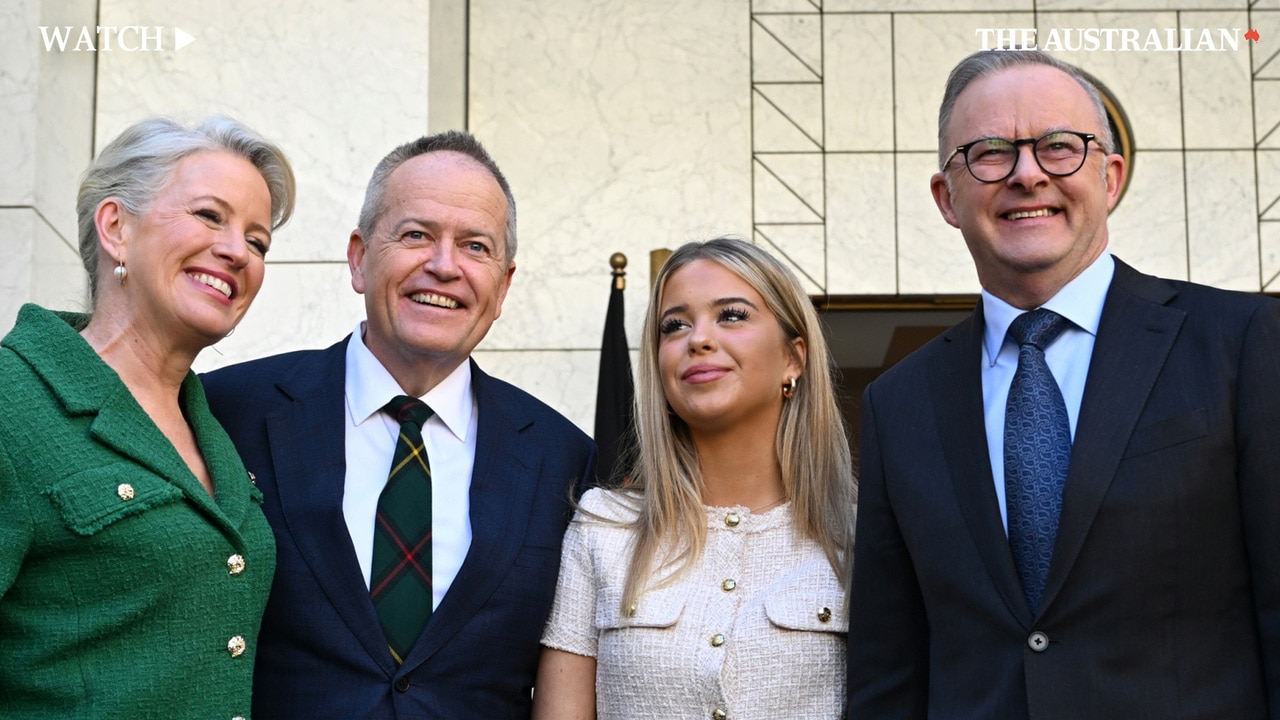
It’s as if Shorten had been working towards this moment in 2006 his entire young life. He drew on his emerging network of influential contacts to get on the ground, and once there tapped into his communication skills to explain a complex drama to a nation transfixed by this life and death rescue. The event, and his performance, propelled him into millions of loungerooms across the country.
For days Shorten held press conferences outside the mine perimeter in the middle of town, shadowed by another prominent former unionist, Paul Howes.
The publicity Shorten garnered during the rescue mission was priceless in a political sense as the nation’s attention was focused on the tragedy then rescue mission after the pair was found 800m below the ground in a tiny space after a mine collapse. They had been underground for two weeks.
For a young union official to be able to call one of the nation’s richest men and borrow his plane was nothing short of extraordinary. Shorten’s connection to Pratt was one of genuine affection and mutual respect, friends say.
Those who watched their bond grow say Shorten never sucked up to Pratt and the billionaire was energised by this smart, ambitious and articulate young Labor type.
“There would be 50 people at lunch at Raheen, and Richard Pratt would ignore all of them and talk to Bill,” someone who was at those gatherings recalled. “The two of them would argue about all sorts of stuff, they would slug it out, but there was a genuine fondness.”
Call it magnetism, or whatever you want, but Shorten possessed plenty of it for most of his adult life. While remembered as an unassuming student while attending Xavier College who displayed little that suggested he was destined for big things, by his early 20s he had emerged as young star of Labor’s Right in Victoria.
As far back as the mid-1990s, the political and media worlds were talking about him in terms of being a future prime minister. He was good company. Charming. Could even be a bit blunt and funny over a meal in China Town.
Shorten enjoyed the company of journalists, almost as much as that of friends and colleagues in the union and political world. He had risen quickly through the ranks of the young Labor movement in the 1980s and in the latter part of that decade was an influential figure with Young Labor, a grouping that traditionally had been the fiefdom of the party’s Left. “Older more senior people in the party quickly identified him as someone who was going places,” a Labor friend from those days said on Thursday.
“Bill was very well organised. He was charming, could be a bit edgy, maybe even snarky with a sharp tongue and wit. He was easy to be drawn towards.”
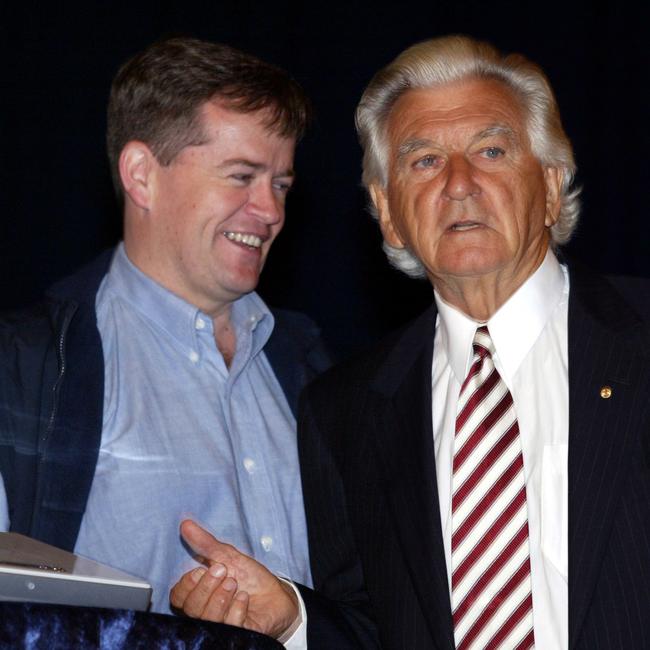
Grabbing control of the young Labor movement was his first venture into the bloody world of Victorian ALP factional politics. He thrived in the deal-making and deal-breaking of this world. He displayed a natural gift for politics.
He cut his teeth in politics while studying arts and law at Monash University, but was always destined for politics rather than a law firm. He met his first wife, Deb Beale, the daughter of a Liberal establishment family, at uni. Again, another example of Shorten personal skill to live in multiple worlds. (Shorten and Beale split a few years later, and Shorten would go on to marry Chloe Bryce, the daughter of Australia’s governor-general, Quentin Bryce.)
In 1999, he was offered a state seat and probably would have been a cabinet minister in the government of Steve Bracks. He turned it down. He was already focused on a bigger place; Canberra.
He worked hard in the AWU during the early 2000s, but was always moving towards a federal seat. In 2006, he was preselected in the electorate of Maribyrnong and entered federal parliament in the 2007 “Rudd-slide”.
In his inaugural speech, Shorten spoke about what he described as his “fortunate life … surrounded by smart and capable people”.
The private school boy was quick to talk up his working-class side, too. “When you talk to steelworkers at the Port Kembla blast furnaces, to the underground miners at Mount Isa, to the oil workers in Bass Strait in winter or to those who staff the undertakers’ night vans as they deal with the grief and tragedy of a road trauma or worse, you know you are in the presence of greatness,” he said.
“When you come face to face with heroism, co-operation and fighting spirit in workplace tragedies such as the Longford gas explosion in Victoria or the Beaconsfield mine collapse in Tasmania, you know you are in the presence of ordinary people performing extraordinary deeds.”
In his speech, Shorten mapped out the type of politician he wanted to be: “I hope to be a consistent and persistent Labor parliamentarian. I shall apply the lessons of my first four decades: the lessons of my family, the lessons of my education, the lessons of business, the lessons of my union days. All of these lessons … can be distilled into one phrase: never give up.”
Perhaps in a subconscious reference to his ability to shift and change with the political winds, Shorten told parliament this: “I advocate no rigid road, for I am sceptical of absolutes. Australians are – by nature, history and geography – pragmatic, and we are gradualists.”
Kevin Rudd immediately appointed him as a junior minister for disabilities and children’s services. It wasn’t a reward. Shorten’s camp saw it as a move by the new PM to give the young charger an area he might find challenging, one that might expose him.
“Bill wasn’t happy about the appointment, at least initially,” a close friend said. “It was odd choice for Kevin to make because Bill had no background in the area of disability and you might even say was ill-suited to the role.”
This same associate said ultimately it made Shorten’s political career. “After one day of meeting stakeholders in the disability field, Bill became their champion and it could be argued this was where the NDIS was created,” they said.
By 2007, Shorten was running hard with his disability portfolio. He knuckled down to the job of being a junior minister. He was also never far from the internal action. When Labor MPs had had enough of Rudd, it surprised very few within the party that Shorten was one of the factional players involved in the move to dump a sitting PM and install Julia Gillard.
As one Labor observer noted on Thursday: “Would Julia have been prime minister without Bill’s support? No, is the answer to that.”
Shorten worked his way up the ministerial ladder under Gillard, taking on senior portfolios such as assistant treasurer, minister for financial services, minister for employment.
Again, he always found time to remain a numbers man. When Rudd challenged Gillard in 2013, Shorten’s late decision to switch support to him proved critical. He did so reluctantly, but because he felt it was the best thing for Labor. It cost him publicly. How can you trust someone who does this? “It didn’t help public perception of him, it didn’t do him much good personally,” one source noted. Rudd would go on to lose the election to Tony Abbott, and from the ashes of defeat, Shorten rose to be opposition leader. He was 46.
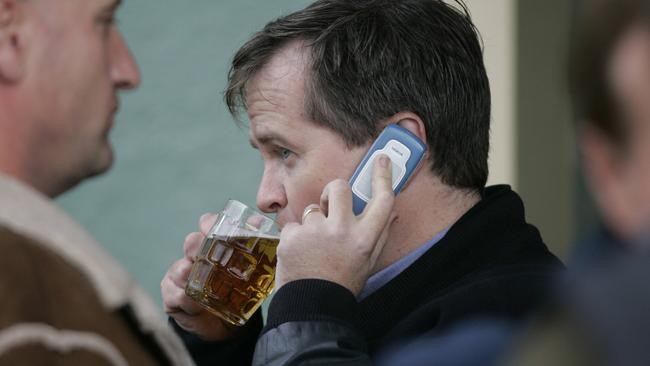
Political treachery would play a part in Shorten’s life yet again – but this time on the Liberal side. Malcolm Turnbull deposed Abbott and would take on Shorten in the 2016 election. Shorten campaigned hard, and came within a few seats of defeating the wooden Turnbull and assuming what many considered his rightful place as the nation’s prime minister. But Turnbull had his 76 seats and would go on as PM, at for now.
Shorten campaigned well and even his rivals within the party accepted he had earned a second shot at moving into The Lodge. By 2018, Turnbull was ousted and Scott Morrison would be his opponent in 2019. Everyone, including Shorten, expected him to win the election. Yet he had underestimated Morrison and overreached by promising new or increased taxes on shares and investment properties.
In the months before the surprise defeat, over dinner at a Fitzroy pub, Shorten waved away suggestions that perhaps he was going too hard on these taxes and should retreat. He said he wasn’t for turning. And he could be imperious.
Election night 2019 would prove a disaster for both Labor and Shorten. Morrison secured 77 seats. The expected celebration became a wake. Shorten resigned.
Anthony Albanese became opposition leader and in 2022 was elected PM. Shorten put aside his ego and got on with the job of being the Minister for the NDIS. Most observers didn’t interpret this as being anything other than a pause in his ambitions. He was still young enough, if carrying baggage, to have another crack.
On Shorten’s fridge at home, a magnet on the door declares “never, ever give up.” On Thursday he did, at least on his ambition to be PM, and is moving on to a life after politics … something many thought they would never see.


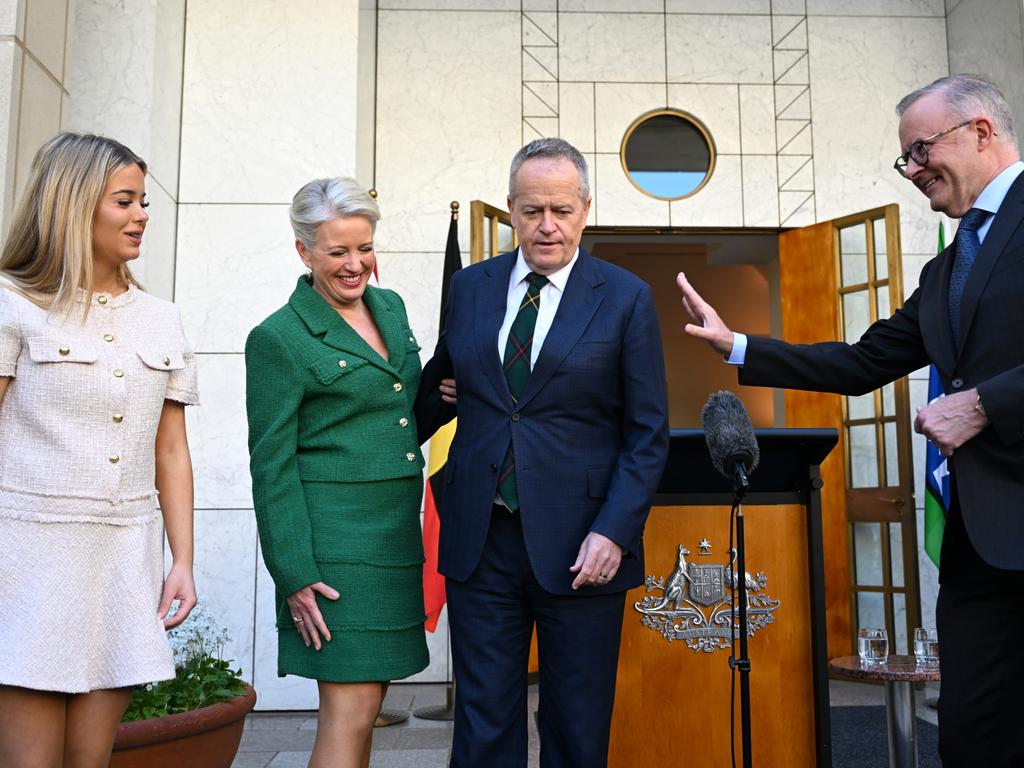
To join the conversation, please log in. Don't have an account? Register
Join the conversation, you are commenting as Logout